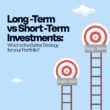Investing in the Nigerian stock market can feel like navigating Lagos traffic. It’s unpredictable, and sometimes outright frustrating. But here’s the thing, once you understand what drives stock prices, everything starts to make sense.
As a newbie investor or someone who’s been in the game for a while, not knowing why stock prices rise or fall can be unsettling. Maybe you bought a stock expecting it to climb, only to see it dip the next week. Or perhaps you held off on buying, and the price increases overnight. Either way, it’s easy to feel powerless.
If you can understand these factors, you’ll be able to make more informed decisions.
Key Factors Influencing Nigeria Stock Market Prices
1. Economic Indicators
One of the biggest influences on stock prices is the economy. When the Nigerian economy is doing well, companies generally perform better, which drives up stock prices. But what does “doing well” mean? It’s all about indicators like GDP growth, inflation rates, and interest rates.
For example, when Nigeria’s GDP grows, it usually signals that businesses are thriving. This growth attracts investors, pushing stock prices higher. On the flip side, high inflation rates can hurt the purchasing power of consumers, which can negatively impact companies and, by extension, their stock prices.
Interest rates set by the Central Bank of Nigeria (CBN) also play a significant role. If interest rates are high, borrowing becomes expensive for businesses. This often leads to reduced profits and lower stock prices. Conversely, lower interest rates encourage borrowing and investment, which can boost stock prices.
2. Corporate Performance
At the end of the day, a company’s stock price reflects its performance. When a company reports strong earnings, pays dividends or announces major expansions, its stock price tends to rise. Investors want a piece of the action.
Take, for instance, Dangote Cement. Whenever the company releases a positive quarterly earnings report, you’ll often see a spike in its stock price. This is because strong earnings signal that the company is profitable, and profitability is what every investor loves.
But it’s not just about profits. Sometimes, even the hint of future growth can drive stock prices. A company announcing a new product line, expanding into a new market, or entering into a strategic partnership can all send its stock soaring—even before the results come in.
3. Investor Sentiment
Stocks don’t just move based on hard data; emotions also play a huge role. Sometimes, it’s not about what’s happening, but what people think is happening. This is what we call investor sentiment.
Let’s say there’s a rumor that a major foreign investor is pulling out of Nigeria. Even if it’s not true, that fear can cause a sell-off, driving stock prices down. On the other hand, news of government reforms or economic improvements can boost investor confidence, pushing prices up.
Social media also amplifies sentiment. These days, a single tweet or news article can spark panic or excitement. Keeping an eye on market chatter can sometimes help you predict short-term price movements.
4. Oil Prices and Exchange Rates
Nigeria’s economy is heavily reliant on oil, so it’s no surprise that oil prices impact the stock market. When crude oil prices rise, the Nigerian government earns more revenue, which often trickles down to the economy. This boost can positively impact companies, especially those in sectors like energy and banking.
Exchange rates are another critical factor. Many Nigerian companies rely on imported goods or have foreign investors. When the Naira weakens against the Dollar, it increases the cost of imports, which can hurt profitability. At the same time, a weak Naira can discourage foreign investors, leading to capital flight and lower stock prices.
5. Government Policies and Regulations
Government actions can either make or break the stock market. Policies like tax reforms, trade agreements, and budget announcements have a direct impact on companies and, by extension, their stock prices.
A good example is the recent removal of fuel subsidies in Nigeria. While it’s been a tough pill to swallow for many Nigerians, it’s created opportunities for certain sectors like renewable energy and transportation. Investors often reposition their portfolios based on such policy changes.
Regulations from the Securities and Exchange Commission (SEC) also play a role. For instance, stricter compliance requirements might increase operational costs for companies, affecting their profitability and stock prices.
6. Global Market Trends
The Nigerian stock market doesn’t exist in a vacuum. Events happening around the world can have a ripple effect here. For example, if the U.S. Federal Reserve hikes interest rates, it can attract foreign investors away from emerging markets like Nigeria.
Similarly, global events like a slowdown in China’s economy or geopolitical tensions can impact Nigeria. Why? Because Nigeria trades with these countries, and any disruption affects local businesses and their stock prices.
A recent example is the COVID-19 pandemic. The global economic slowdown had a severe impact on Nigerian stocks, particularly in sectors like aviation, oil, and manufacturing. Staying informed about global trends can give you a heads-up on potential market movements.
7. Supply and Demand Dynamics
At its core, the stock market is all about supply and demand. If more people want to buy a particular stock than sell it, the price will go up. If the reverse is true, the price will fall.
Take MTN Nigeria’s stock as an example. If after a positive earnings report, investors most times rush to buy shares, creating high demand and pushing the price up. Conversely, if there’s bad news about the company, you’ll see more sellers than buyers, causing the price to drop.
FAQs
What should I focus on as a beginner investor in Nigeria?
As a beginner who wants to invest in Nigeria, you should start by understanding the key factors driving stock prices. Pay attention to corporate performance, economic updates, and global trends. Also, use tools like Trove Finance to access resources and simplify your investment process.
What is the most significant factor affecting stock prices in Nigeria?
There isn’t a single dominant factor because stock prices are influenced by a mix of elements like economic indicators, corporate performance, investor sentiment, and global trends. However, in Nigeria, oil prices and exchange rates often have a pronounced impact due to the country’s reliance on oil revenues.

Conclusion
Understanding what drives stock prices in Nigeria isn’t just for financial analysts or seasoned investors. It’s for you, whether you’re just starting your investment journey or looking to level up. These seven factors: economic indicators, corporate performance, investor sentiment, oil prices and exchange rates, government policies, global trends, and supply and demand dynamics are like pieces of a puzzle. When you put them together, the picture becomes clear.
The more you understand these drivers, the more confident you’ll feel in making investment decisions. So, keep an eye on the news, track corporate performance, and always be curious about how global and local events might affect the market.
And if you’re looking for a reliable partner to help you navigate the Nigerian stock market, Trove Finance has got you covered.




